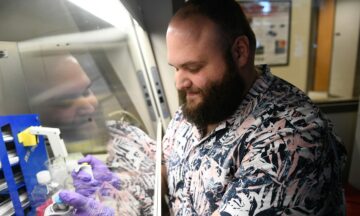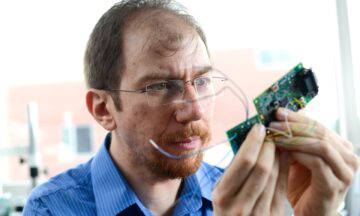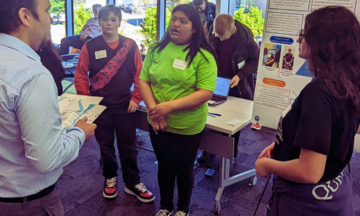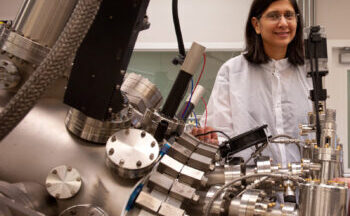
Recent Posts


Michael Daniele Receives the 2024 William F. Lane Outstanding Teaching Award
Michael Daniele, associate professor in the Departments of Electrical and Computer Engineering & Biomedical Engineering, has received the 2024 William F. Lane Outstanding Teaching Award
Edgar Lobaton Receives the 2023 William F. Lane Outstanding Teaching Award
Edgar Lobaton, associate professor in the Department of Electrical and Computer Engineering, has received the 2023 William F. Lane Outstanding Teaching Award This article was...
ASSIST Deputy Director Alper Bozkurt Receives 2023 Outstanding Global Engagement Award
On April 19, NC State Global hosted its annual Global Engagement Exposition to celebrate finalists and recipients of the Outstanding Global Engagement Award, Jackson Rigney Service Award and Distinguished Global Alumni Award.
NC middle and high schoolers demonstrate the future of ASSISTive technology
The annual Wearable Device Challenge is in its eighth year at NC State, with one year off for the pandemic in 2020. Put on by the ASSIST Center, students are tasked with developing wearable health monitoring devices for humans or animals.
Researchers Help AI Express Uncertainty to Improve Health Monitoring Tech
A team of engineering and health researchers has developed a tool that improves the ability of electronic devices to detect when a human patient is coughing, which has applications in health monitoring. The new tool relies on an advanced artificial intelligence (AI) algorithm that helps the AI better identify uncertainty when faced with unexpected data in real-world situations.
Veena Misra Named as MC Dean Distinguished University Professor
Veena Misra has earned the second honorific professorship title MC Dean Distinguished University Professor in Electrical and Computer Engineering.
Misra Named to DARPA Microsystems Exploratory Council
The Defense Advanced Research Projects Agency (DARPA) has named Dr. Veena Misra to the Microsystems Exploratory Council (MEC) for a three-year term beginning this summer....
